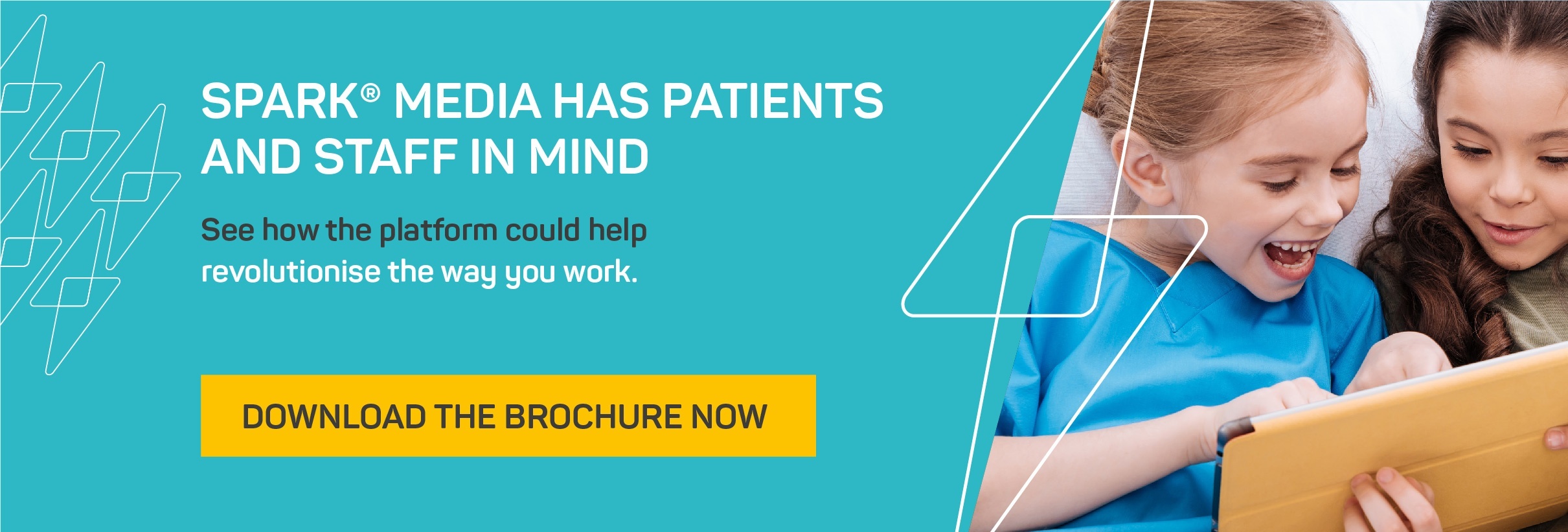How Patient Feedback Can Drive Improvement in the NHS
5 minute read

In all industries, feedback is a great tool to use to target areas that need improving. Honest feedback is great for informing you of what you’re doing well and what you need to work on.
Around 1.2 million responses are submitted every month to the Friends and Family Test. This test was first launched in 2013 to the inpatient services. By 2013, the test was rolled out across other healthcare services and acted as a form of real-time feedback. This survey and other modes of feedback are what has led the NHS to become one of the world leaders in listening to their patients and acting on their feedback.
Patient feedback is a useful way for the agencies within the NHS, such as NHS Improvement, to assess the ongoing impact of national policies and investments on patients. They will then decide whether or not they need to act further.
Patient feedback is vital to constantly improving the service provided by the NHS. If you’re not sure how, this post will outline the different ways in which the Trusts can act on the feedback they receive.
The Importance of Feedback
In all industries, feedback is absolutely vital. But, it’s not what you collect with your feedback, it’s how you react to it. Your feedback serves two main purposes - it lets you know what you’re doing well and what you’re not doing so well. But it’s pointless even receiving feedback if you’re not acting upon it.
Feedback should ultimately lead to improvement within the NHS. Research from the NHS Staff Survey shows that 51 percent use patient feedback for their own improvement in their own services and teams. The majority of patient feedback arises from the Friends and Family Test, as patient surveys. While they’re great for producing comparable data and take longer to produce, they don’t receive as many responses and don’t happen as frequently.
NHS Friends and Family Test
The NHS Friends and Family Test (FFT) was created to help understand whether patients were aptly satisfied with the service that’s been provided and where they feel improvements could be made too.
The survey is quick to fill in and responses also remain anonymous. Since its launch in 2013, more than 25 million responses have been submitted. Originally, the test was launched and targeted at the inpatients. However, it’s now rolled out across most NHS services including community care, mental health services and GP and dental practices.
How Does it Work? How are the Results Used?
Once a patient’s treatment has come to an end, or they’re discharged from a service, they’ll be invited to fill out the FFT. Patients can be asked while they’re still on the premises before they leave or usually they will be contacted within 48 hours.
The FFT helps the NHS deliver genuine change that benefits patients and services alike.
The NHS gathers the results and analyses them quickly to see if any action is required. An overall score is produced from the responses and the comments are retained by the service to then trickle them through to the staff and managers.
Patients are also informed of the results from the feedback. They’re provided with comments and suggestions made along with any actions that are planned to take in response too. These results are distributed by email, websites or face to face meetings.
But Trusts can be doing more in order to encourage feedback submissions. One way to do this would be to start utilising patient entertainment systems to gather feedback. This way, the patients won’t have to go out of their way to fill in a feedback form and can do it in their own time, in the comfort of their own bed. This will make for a more efficient way of collecting feedback, which will likely improve feedback ratings too.
Improved Patient Entertainment Improves Patient Feedback
A lot of the results that return from the FFT are that patients are often bored during their time in hospital. Also, this state of mind leaves patients prone to giving unfairly negative feedback, if any at all.
Patient entertainment systems that were once cutting-edge now seem clunky and slow.
These bulky, old systems were first introduced in the early 2000s and their built-in screens aren’t user-friendly anymore. So, if the NHS improves their in-house entertainment facilities, the likelihood is that patients wouldn’t be as bored.
The contemporary option is to let patients entertain themselves using their own devices over a WiFi connection. At the same time, the entertainment platform - which sits on the patient's own device - makes it easier and more likely for feedback to be submitted.
SPARKⓇ Media is the innovative, future-ready platform that will completely revolutionise the patient entertainment market. It represents a new way for patients to receive entertainment and engage with their healthcare journey. The service delivers TV, radio and other services to any WiFi-enabled device with a web browser.
Not only will patients benefit from a broader choice of television, movies and radio but they can also access educational videos and tutorials that can further explain their diagnosis. Often patients are left in the dark or confused about their situation. However, with these educational tutorials, they can take control of their own healthcare and be comfortable knowing exactly what treatment they are going to receive.
An entertained and occupied patient is a happy one. Plus, it’s not only feedback that will improve through improving the entertainment systems. It’s also proven to show that wellbeing is directly affected with a patient’s mindset. If a patient is bored, they’re more likely to get lost in their anxieties and think negatively. Keeping them entertained keeps them on a positive note which is likely to speed up recovery times too.
Provide Better Healthcare With Improved Patient Entertainment
Patient Entertainment systems, in particular SPARKⓇ Media, aren’t only beneficial to improve patient feedback. They let you provide an all-round more complete service that patients will definitely be satisfied with.
An entertained and occupied patient is a happy one. Plus, it’s not only feedback that will improve through improving the entertainment systems. It’s also proven to show that wellbeing is directly affected by a patient’s mindset. If a patient is bored, they’re more likely to get lost in their anxieties and think negatively. Keeping them entertained keeps them on a positive note which is likely to speed up recovery times too.
If you’d like to find out more about how hospital entertainment systems can improve the NHS, download a free copy of our SPARKⓇ Media brochure below.
About the author
Rebecca O'Donovan
Rebecca is the Marketing Director. She's worked for SPARK TSL since 2012. She is responsible for high level marketing strategy focusing on lead generation and aiding the vision of the business; to ensure that no patient has to pay for entertainment.
More articles by the author
Related articles
 Healthcare Industry
Healthcare Industry
Using Patient Feedback to Improve Service Levels | SPARK TSL
When thinking logically about improving a service, it makes sense to survey the people receiving it, figure ...
 Healthcare Industry
Healthcare Industry
How to Improve Patient Engagement in Their Own Healthcare | SPARK TSL
With a surge in telehealth and virtual care, the pandemic has prompted people to engage with their own care ...
 Healthcare Industry
Healthcare Industry
What is NHS Improvement Doing About Patient Entertainment? | SPARK TSL
For a better overall experience,, patients need to be entertained adequately during their stay in a hospital. ...


